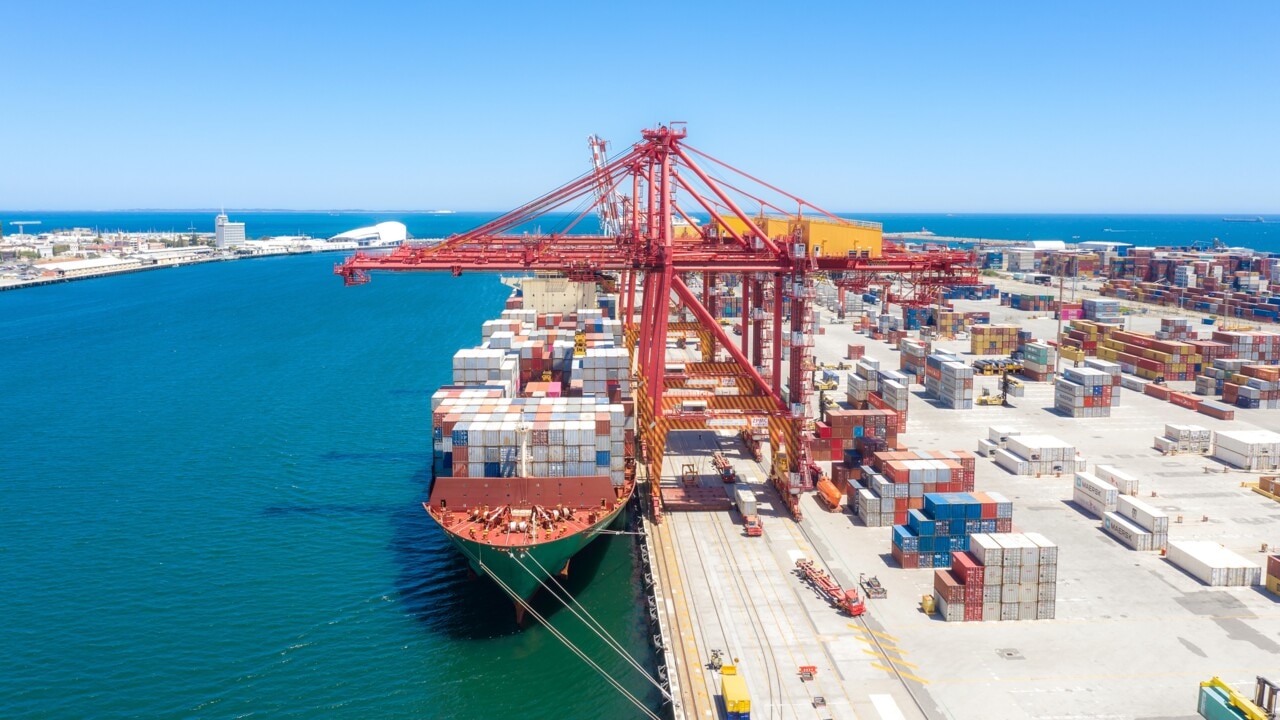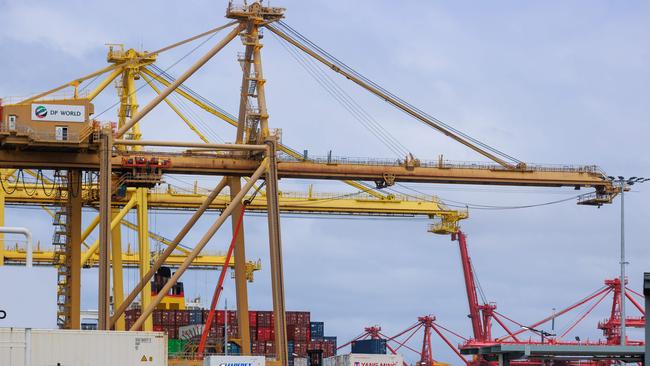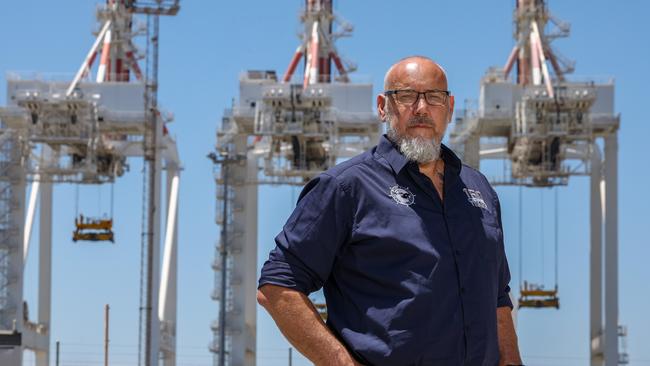Farmers and exporters struggle as ports dispute spirals with DP World
Farmers around the country worry about how much of their exports will spoil as the fight between ports operator DP World and its workers escalates.

As the ports dispute between the nation’s second biggest stevedore DP World and its workers escalates, Australia’s exporters are caught in the middle.
Farmers in particular are wringing their hands as their chilled or frozen products — be it meats, fruits, or vegetables — either sit idle at the dock or are frantically trucked interstate in the hope of gaining a berth elsewhere.
“If it’s a perishable product then it’s destroyed if it doesn’t make it on time,” says one of the nation’s biggest chilled exporters Roger Fletcher from Fletcher International.
“We are shipping chilled and frozen sheep meat into all these markets we’ve been painstakingly growing over a number of years, because the government tells us to diversify, and we just get caught up in a mess. It’s just crazy.”
As it stands there are about 49,000 containers delayed at ports across the country as DP World, the nation’s second biggest stevedore, fights with its staff over pay, rostering and as it tries to bring its enterprise bargaining agreement into line with its rivals.
On Friday staff refused to work for eight hours at Sydney, Brisbane and Fremantle and instituted a partial ban in Melbourne. The Fair Work Commission then approved a 16-hour stoppage across all DP World terminals that could take place in just over a week.
The ports fight is shaping up to be the worst since Hutchinson Ports locked out its workers in 2015.

A bigger fear is that this could boil up to something like the 1998 waterfront dispute, when the Howard-government Patrick restructured so that it could fire its workers — later found to be illegal — and secretly train new stevedores in Dubai.
The result was lockouts, and significant job losses for MUA workers who at least did get to come back to the docks, but on lower pay rates with greater casualisation.
“Unfortunately the losers are the farmers,” says Fletcher. “Forget the few people in Sydney, it affects our chain right from the farmer right through to the other end.”
Australia is both a major exporter of food and an island, therefore reliant on shipping to get its product to market. Air freight comes with a higher cost and capacity constraints, not helped by the government’s decision last year to block Qatar from increasing services here.
The Australian Logistics Council said the issue is becoming a national crisis that requires federal government intervention.
ALC chief executive Hermione Parsons the chief executive officer said their ongoing risk to supply chains if negotiations are allowed to continue for nine months before the FWC intervenes. The government can ask the FWC to order arbitration before that time.
“We need the government to act to stop this type of disruption,” says Parsons. “All of these delays, backlog, and disruption come at a cost and someone has to pay and our cost of living is already rather high.”
The cost of shipping has already risen dramatically because the Iran-backed Houthis in Yemen have been attacking ships in the Red Sea, and water levels in the Panama Canal have dropped due to drought.
Those problems can’t be resolved from Australia, but exporters and importers alike say the issue on DP World ports certainly can and should be.
Port insiders believe neither DP World boss Nicolaj Noes nor the notoriously militant MUA is doing enough to try to bring about a deal.
MUA national assistant secretary Adrian Evans points out that Mr Noes did not attend any of this past week’s negotiations and questioned whether the Dubai-based firm was really negotiating in good faith.

The MUA is seeking a two-year pay deal with a 16 per cent rise, which is still lower than the 17 per cent Patrick stevedores earn.
But Noes is ideologically opposed to the principle of “same work same pay” and points out that Patrick workers are significantly more productive because the rival has greater ports automation.
While the MUA and DP World game out their next move, the nation’s farmers can only ask that the government intervene.
Victorian Farmers Federation president Emma Germano says she is concerned about the amount of perishable goods now going to waste.
“It’s entirely unacceptable that this industrial action is costing the Australian economy,” Ms Germano says. “Every Australian will be bearing the brunt of this and it’s a total shame that millions of dollars of perishable goods are now going to waste.”




To join the conversation, please log in. Don't have an account? Register
Join the conversation, you are commenting as Logout